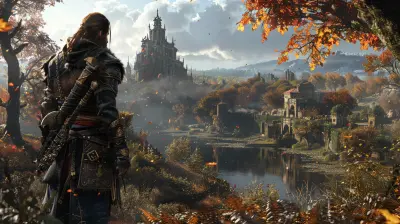How Final Fantasy Redefined the Role-Playing Game Genre
12 October 2025
When you think of timeless video game franchises, there's no doubt that _Final Fantasy_ is one of the first names that comes to mind. It’s not just because the series has been around for over three decades, or that it's sold millions of copies worldwide — it’s because _Final Fantasy_ truly redefined what it means to play a role-playing game (RPG). And let’s be honest, if you’ve ever dived into one of its stories, you know there's something incredibly special about it.
So, how did a game that started as a last-ditch effort from a struggling developer change RPGs forever? Pull up a chair and let’s go on this pixelated journey together. Whether you're a seasoned player or someone just curious about all the hype, this one’s for you.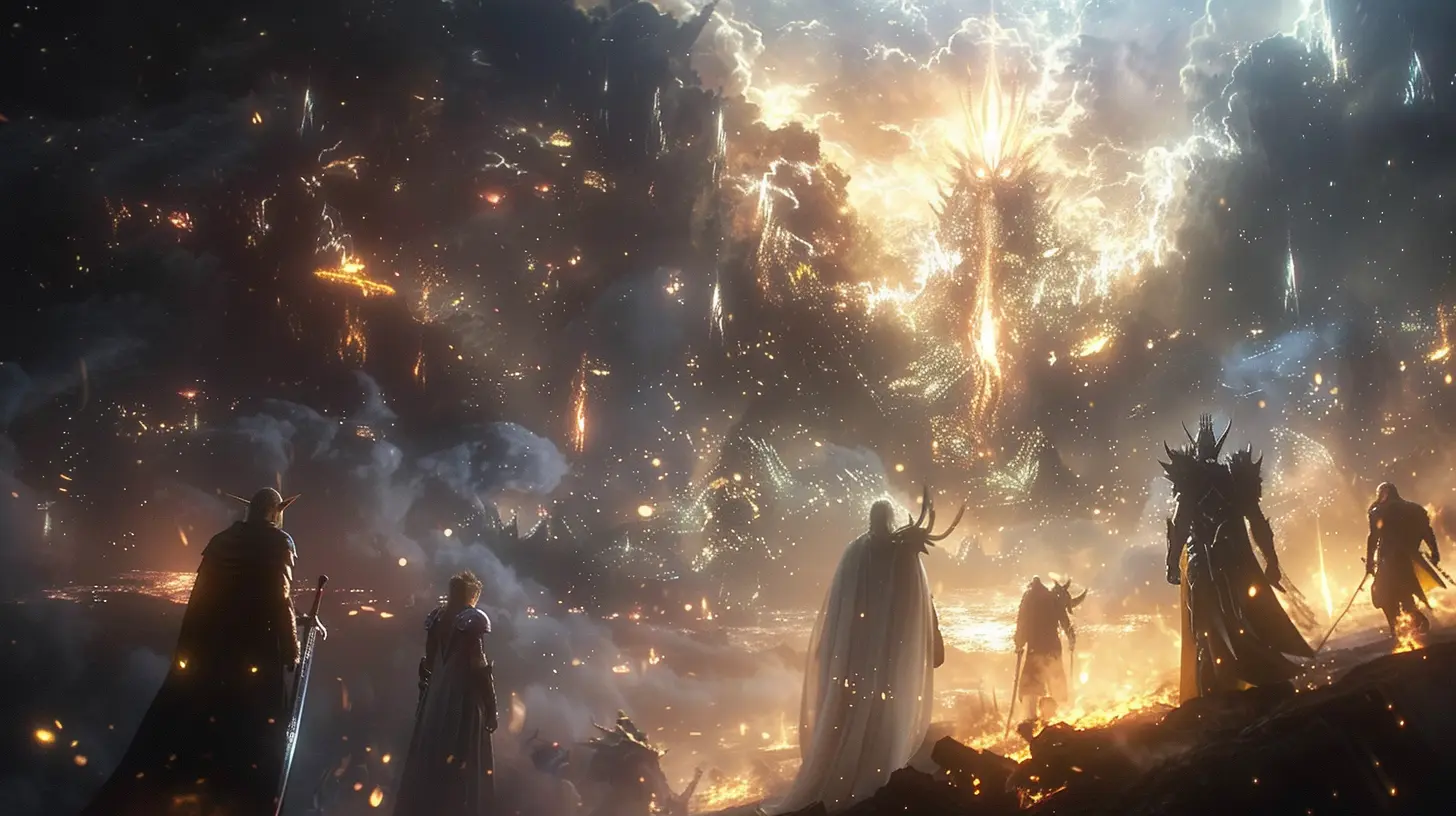
The Humble Origins: A Fantasy Born from Desperation
Let’s rewind a bit. The year is 1987. Square (now Square Enix) was on its last legs. Out of pure desperation, Hironobu Sakaguchi pitched one final project — hence the name “Final Fantasy.” Ironically, this "final" game turned out to be the beginning of something magical.From the very start, _Final Fantasy_ stood out. While other RPGs at the time leaned heavily on stat management and rigid mechanics, FF focused on storytelling, emotion, and imagination. It was like reading an epic fantasy novel where you didn’t just watch the story unfold — you lived it.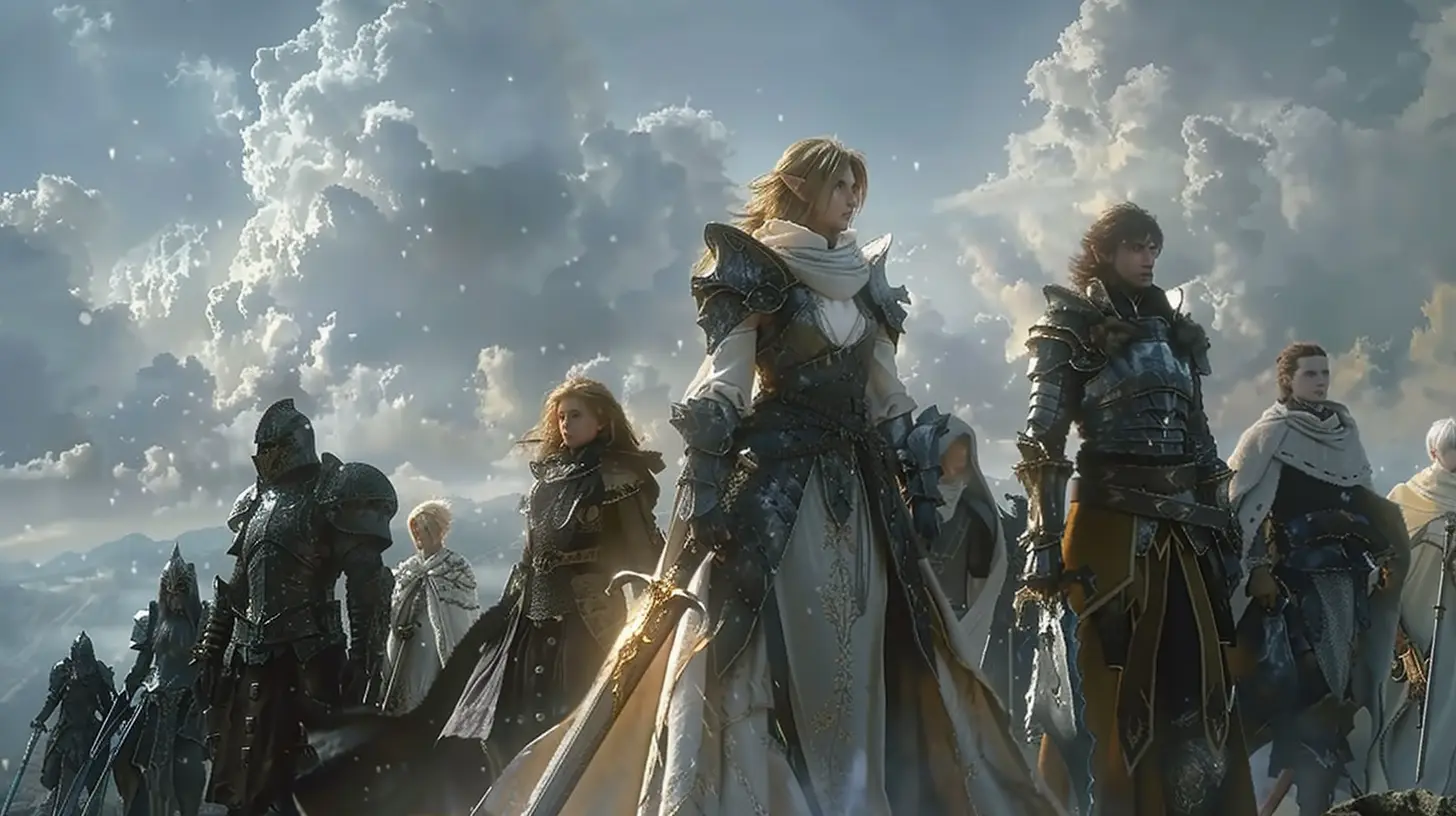
Bringing Storytelling Front and Center
Before _Final Fantasy_, gameplay often took precedence over narrative in RPGs. Sure, there were quests to complete and villains to defeat, but they often felt like filler between combat and grinding. FF changed the game (literally) by making story the heart and soul of the experience.Each _Final Fantasy_ title feels like its own universe, with unique characters, culturally rich settings, and complex plots that dive into love, loss, war, identity, and sacrifice. Remember Aerith from _Final Fantasy VII_? Her story shook the gaming world and brought emotional depth to video games like never before.
The narrative wasn't just wallpaper; it was the engine that drove you forward. You didn’t just care about leveling up — you cared about your party members, their struggles, and their futures.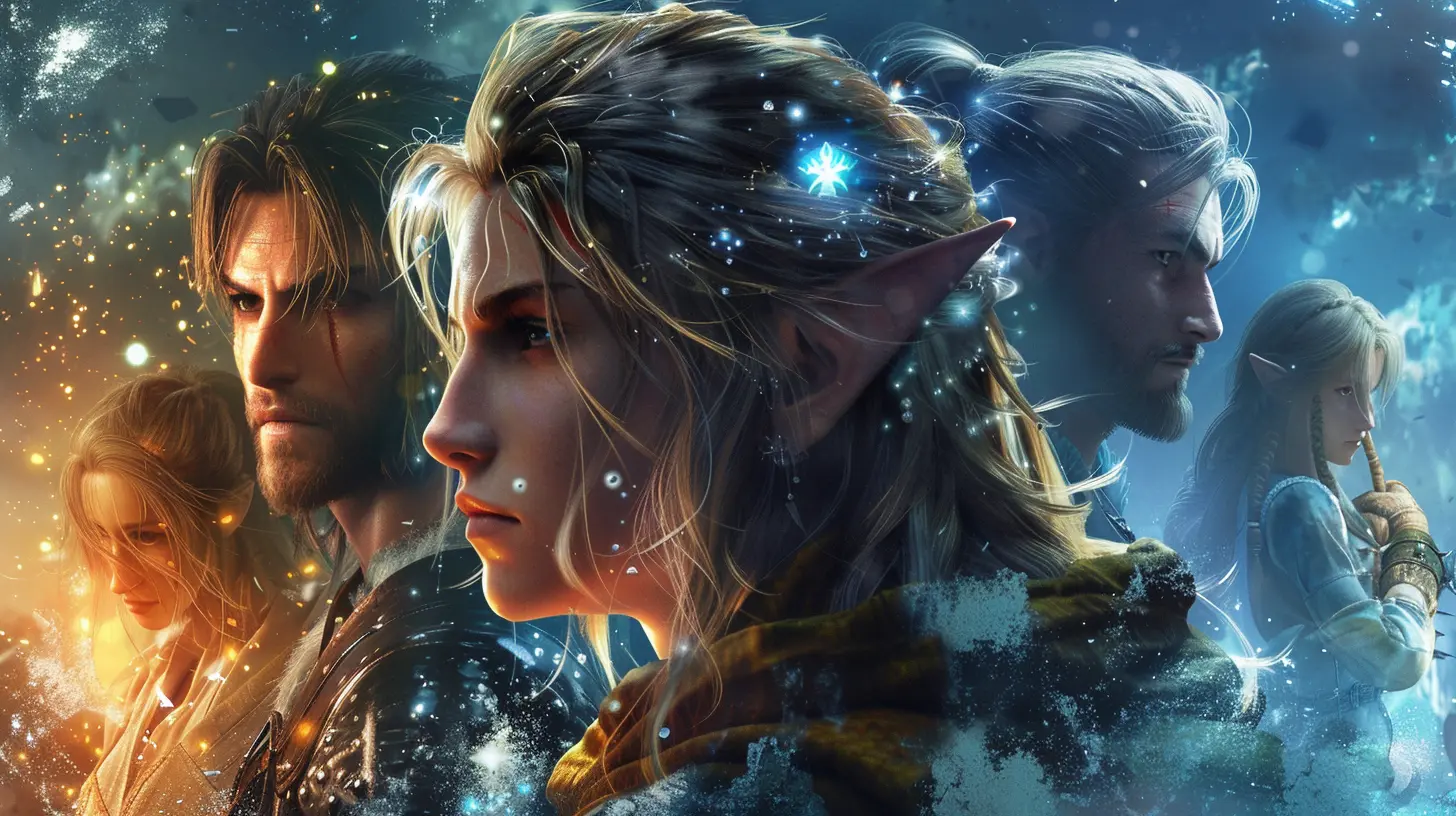
Visuals That Captured Imaginations
Let’s talk graphics. When the original _Final Fantasy_ released on the NES, it pushed the system visually. But it was _Final Fantasy VII_ that took things to a whole new level. When it came out in 1997 for the PlayStation, those pre-rendered backgrounds, cinematic cutscenes, and blocky-but-lovable character models blew everyone’s minds.And Square didn’t stop there. With each new entry, the graphics evolved, often setting a new standard for the genre. They brought us spellbinding locations like Zanarkand, Midgar, and Eorzea — each one etched into the minds of gamers around the world.
And really, who didn’t pause mid-game just to soak in the scenery?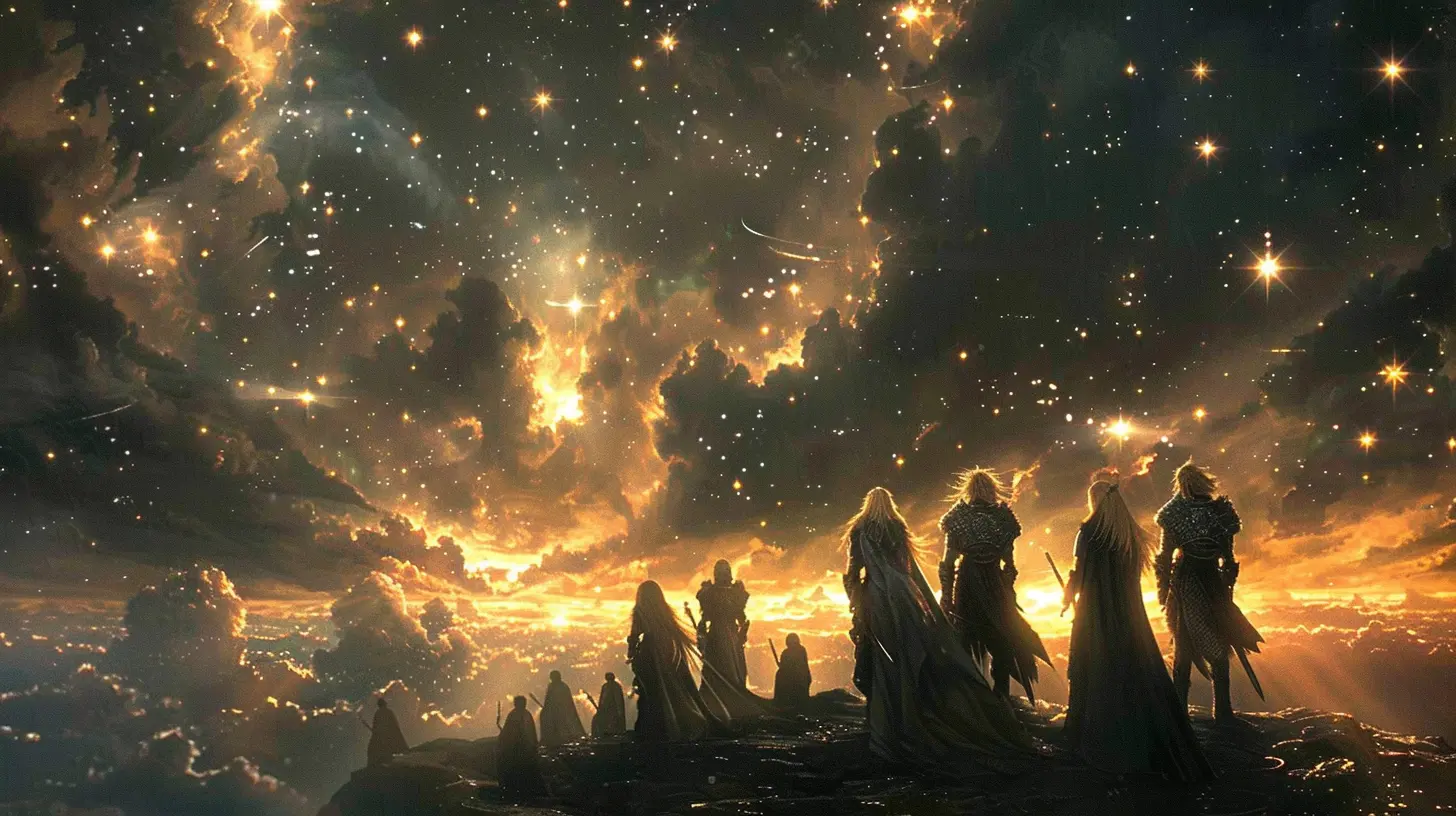
Groundbreaking Combat Systems
Another reason _Final Fantasy_ redefined the RPG genre was its innovative combat systems.Remember the classic turn-based battles? They taught us patience, strategy, and the thrill of pulling off a perfectly timed summon. But FF didn’t get stuck in the past. The Active Time Battle (ATB) system introduced in _FF IV_ blurred the lines between turn-based and real-time action, adding urgency and excitement.
Fast forward to _Final Fantasy XV_ and _FFVII Remake_, and you’ve got real-time combat and hybrid systems that marry action with strategy. These changes weren’t just made for the sake of novelty; they kept the franchise fresh and appealing to new generations.
This adaptability is a big part of why FF remains relevant today. It respects the roots but isn’t afraid to grow new branches.
Music That Hits You Right in the Feels
Now, let’s talk tunes — because _Final Fantasy_ has some of the most iconic soundtracks in gaming history.From the very first opening theme to Nobuo Uematsu’s emotional masterpieces like “To Zanarkand” and “One-Winged Angel,” the series’ music transcends the screen. These aren’t just game tracks; they’re full-blown symphonies. They make you cry, smile, tense up, and cheer. Sometimes just hearing a few notes is enough to take you back to a specific moment in the game.
What’s amazing is how the music became an integral part of storytelling. It wasn’t background noise — it was the emotional current of the entire experience.
World-Building That Rivals Any Fantasy Novel
Look, not every game lets you ride a Chocobo across towering plains while being chased by a dragoon on a flying airship. But _Final Fantasy_ does.Each entry builds a distinct universe, often combining high fantasy, steampunk, and science fiction. That blend of genres means you never really know what to expect — and that’s the fun of it.
And it’s not just about how the world looks. It’s the lore, the politics, the cultures, and the little details that make each setting feel alive. Games like _Final Fantasy XII_ (Ivalice) and _Final Fantasy Tactics_ even share the same world, adding a layer of storytelling depth that’s rarely seen in RPGs.
Characters That Stay With You
Where do we even start here?Cloud. Tifa. Squall. Terra. Zidane. Yuna. Noctis. These aren’t just playable characters — they’re icons. Each one has their own quirks, motivations, epic moments, and heart-breaking pasts.
What _Final Fantasy_ does so well is character development. It doesn't just introduce you to heroes; it lets you grow with them. You see their doubts, their growth, and ultimately, their transformation. And that connection? That’s what makes the story hit so hard.
Plus, let’s not forget the antagonists. Sephiroth alone is proof that villains can be just as captivating as heroes.
Reinventing Itself With Every New Entry
One of the most unique things about _Final Fantasy_ is that each mainline game is a completely new world with fresh characters and stories. That means you don't have to play them in order, and you won’t get stuck in a never-ending lore maze.Every game feels like a new experiment — a new roll of the dice. Some have job systems like in _Final Fantasy V_, others focus on political intrigue like _XII_, or go full-emo fantasy road trip like _XV_. Every time, fans are treated to something familiar yet different.
That kind of reinvention is rare — and a big reason why the series keeps drawing in both old fans and newcomers.
Influence Beyond the Game
_How Final Fantasy Redefined the Role-Playing Game Genre_ isn’t just a catchy title — it’s a fact. The ripple effect of this franchise can be seen in countless other games.Think about it. Without _Final Fantasy_, would we have titles like _Kingdom Hearts_, _Persona 5_, or even _The Witcher_ in the same way we know them today? Probably not. FF laid the blueprint for emotional storytelling, deep world-building, and pushing technical boundaries.
Even non-gaming media took notes. Look at the CGI movie _Final Fantasy: The Spirits Within_ or the anime adaptations. This franchise crossed borders and mediums, introducing RPG elements to people who never picked up a controller.
The Power of Community and Legacy
Above all, what makes _Final Fantasy_ special is the community behind it. Fans aren’t just players — they’re artists, musicians, cosplayers, streamers, and storytellers. The passion is infectious.Whether it’s a tearful Let’s Play of Aerith’s death, or a fan theory breakdown of _Final Fantasy XVI_, the series has sparked millions of conversations and connections across the globe.
And with every new release — from _FFVII Rebirth_ to the recently announced _Final Fantasy XIV_ expansions — there’s a sense of excitement that never fades.
So, What’s Next for Final Fantasy?
As we move into a future filled with next-gen consoles and cloud gaming, _Final Fantasy_ is still setting the bar. Real-time ray tracing? Massive open worlds? Deeper narrative choices? You can bet the series is already looking into it.But what makes me the most excited isn't the graphics or the systems. It’s knowing that _Final Fantasy_ will continue to tell stories that matter. Stories that make you laugh, cry, rage-quit, cheer, and maybe even reflect on your own journey.
That's the magic — and that's why it’s not just another game series. It’s a rite of passage.
Final Thoughts
_How Final Fantasy Redefined the Role-Playing Game Genre_ isn’t just about game mechanics or visuals. It’s about heart and soul. It’s about creating experiences that stick with you long after the credits roll. The series evolved, adapted, and boldly went where few games dared — and in doing so, it transformed what we expect from RPGs forever.So whether you're a long-time veteran or someone curious about dipping your toes into the world of Eorzea or Midgar, know this: you’re in for a ride that’s unforgettable.
Remember: In the words of every _Final Fantasy_ save point — “Do you wish to continue your journey?”
Heck yes, we do.
all images in this post were generated using AI tools
Category:
Gaming HistoryAuthor:

Madeleine McCaffrey
Discussion
rate this article
1 comments
Alexander Thornton
Final Fantasy's impact on the RPG genre is profound, introducing intricate narratives and character development that elevate storytelling in games. However, its shift towards linear gameplay and over-reliance on cinematic sequences raises questions about player agency and exploration. Balancing innovation with traditional RPG elements remains a challenge for the genre's future.
October 14, 2025 at 3:53 AM

Madeleine McCaffrey
Thank you for your insightful comment! I agree that while Final Fantasy has significantly advanced storytelling and character development in RPGs, its shift towards linearity does pose challenges for maintaining player agency and exploration. Balancing innovation with classic elements will indeed be crucial for the genre's evolution.
